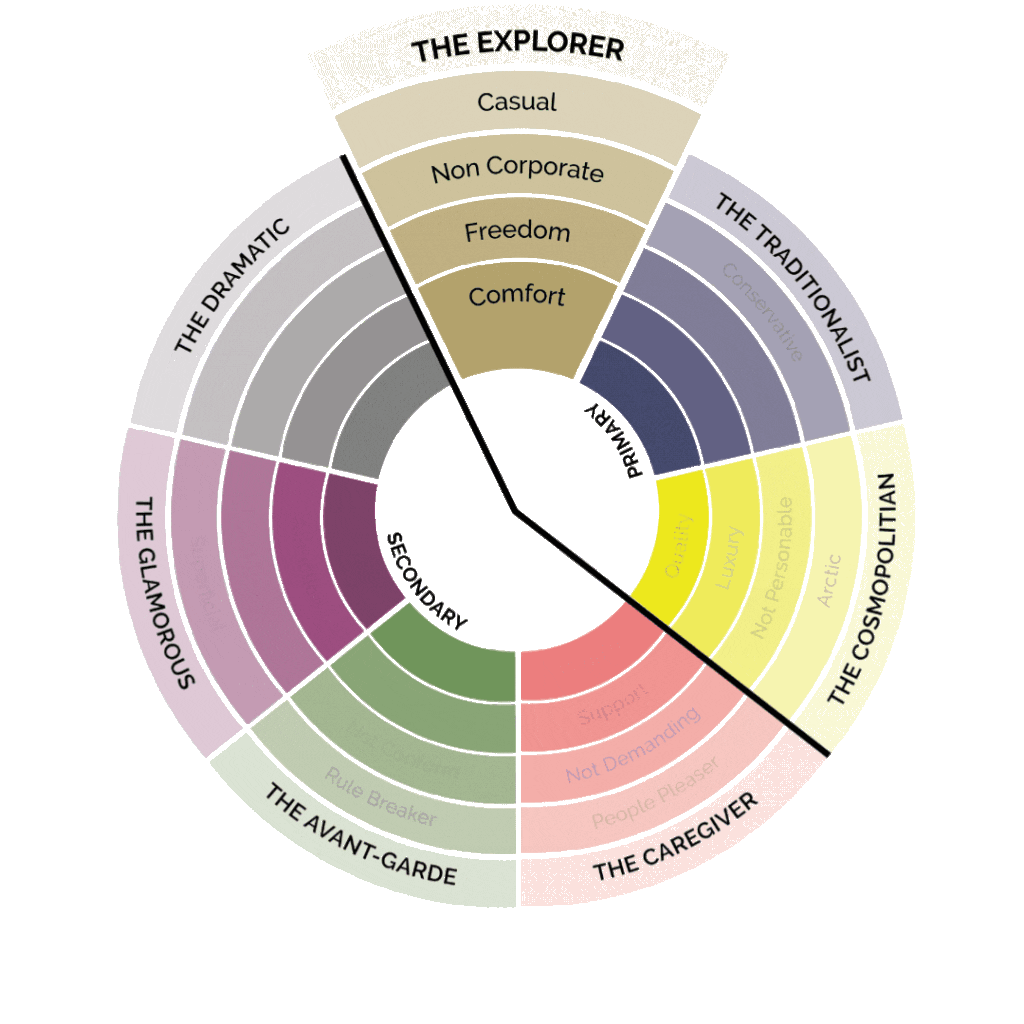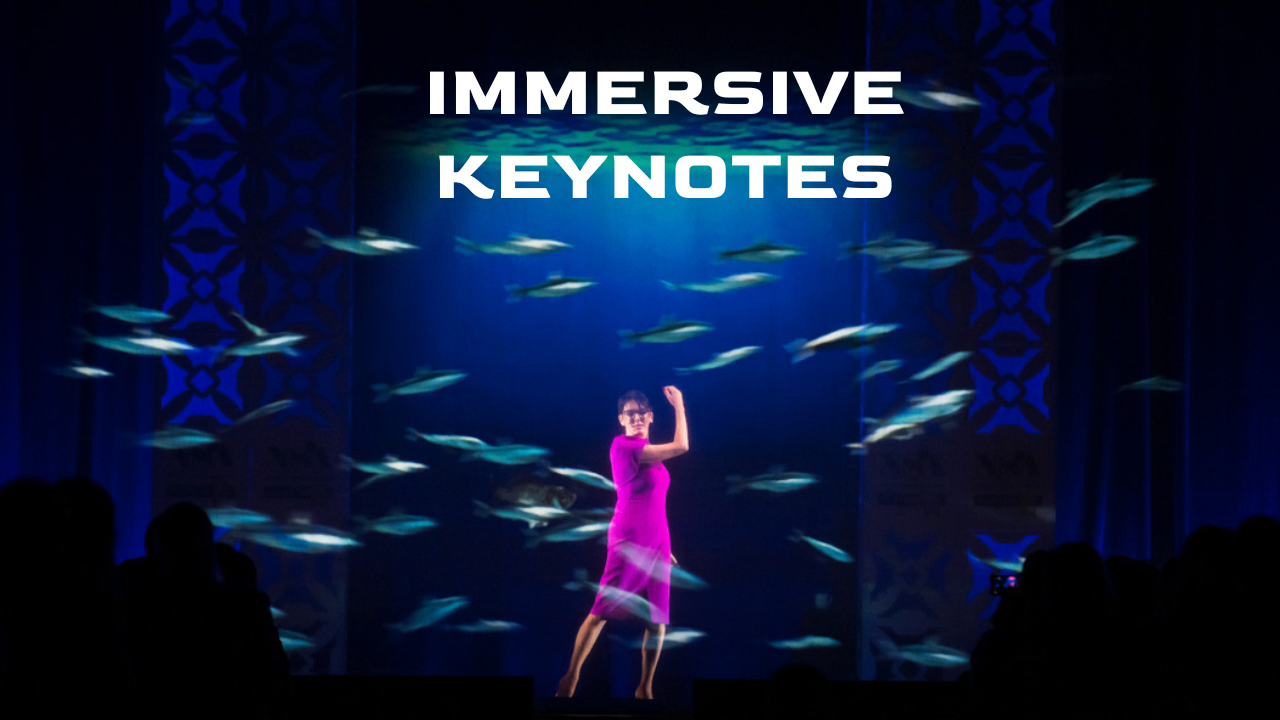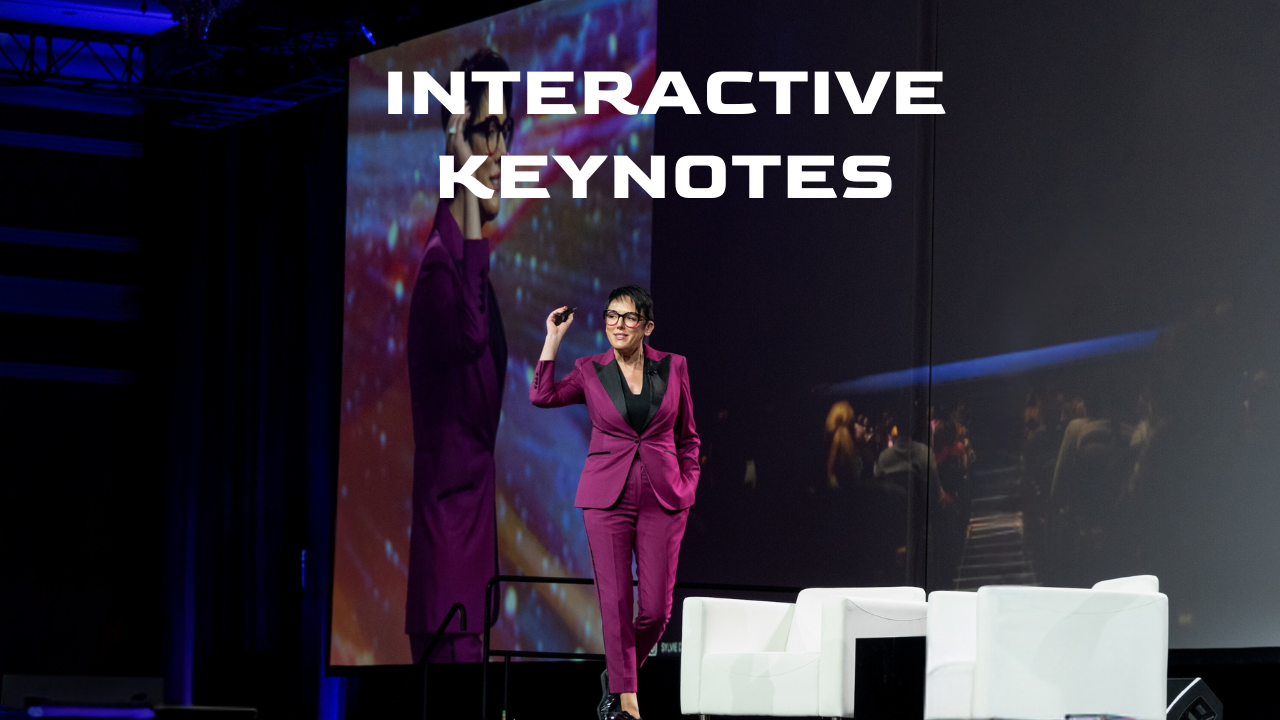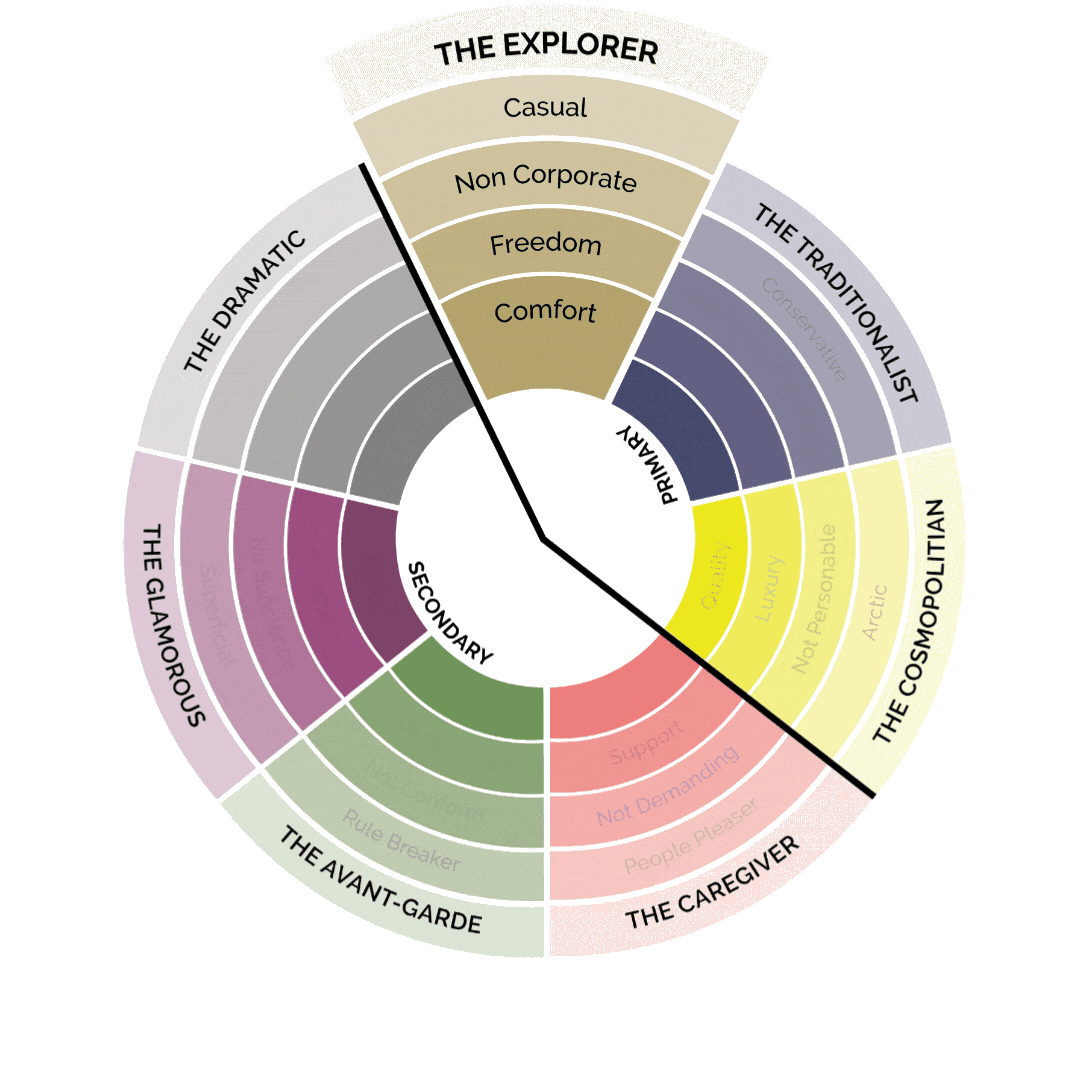Is IAOTP a Scam? The Award That's Selling You More Than Prestige
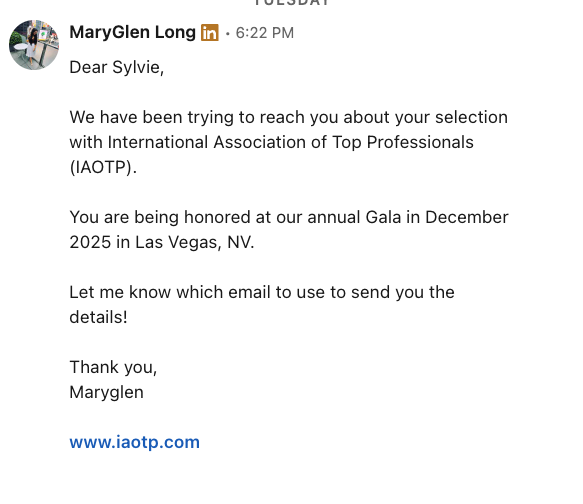
You’re probably here because you just received an email, a LinkedIn message, or maybe even a phone call. It starts with flattery. You’ve been selected by the International Association of Top Professionals. You’re a “Top Executive of the Year” or perhaps the “Most Visionary Leader of the Decade.”
They say you didn’t apply; they just “found you.” It feels like a surprise party thrown in your honor. There’s a short high that hits right after—a little dopamine cocktail of flattery and disbelief. A strange, seductive pull to being noticed. But it settles quickly and leaves you wondering.
The question, “Or maybe, is IAOTP a scam?” wanders through your head, quietly but persistently. It doesn’t surface because you want to be cynical. It surfaces because something doesn’t sit quite right. Because deep down, you know that real recognition usually takes more than an inbox notification. And you are correct.
Key Takeaways
- IAOTP often reaches out unsolicited, offering grand-sounding awards without transparent selection criteria.
- Recipients are typically asked to pay for the award experience, which includes plaques, press releases, and gala invitations.
- Many past recipients initially felt honored, only to later question the legitimacy and value of the award.
- While the awards may come with polished packaging, they are widely regarded as vanity honors with little to no industry credibility.
- Participating in IAOTP may temporarily boost visibility, but it can also raise red flags and hurt your personal brand and reputation.
- There are better ways to gain recognition—ones that don’t require opening your wallet to feel seen.
The Compliment That Comes With an Invoice
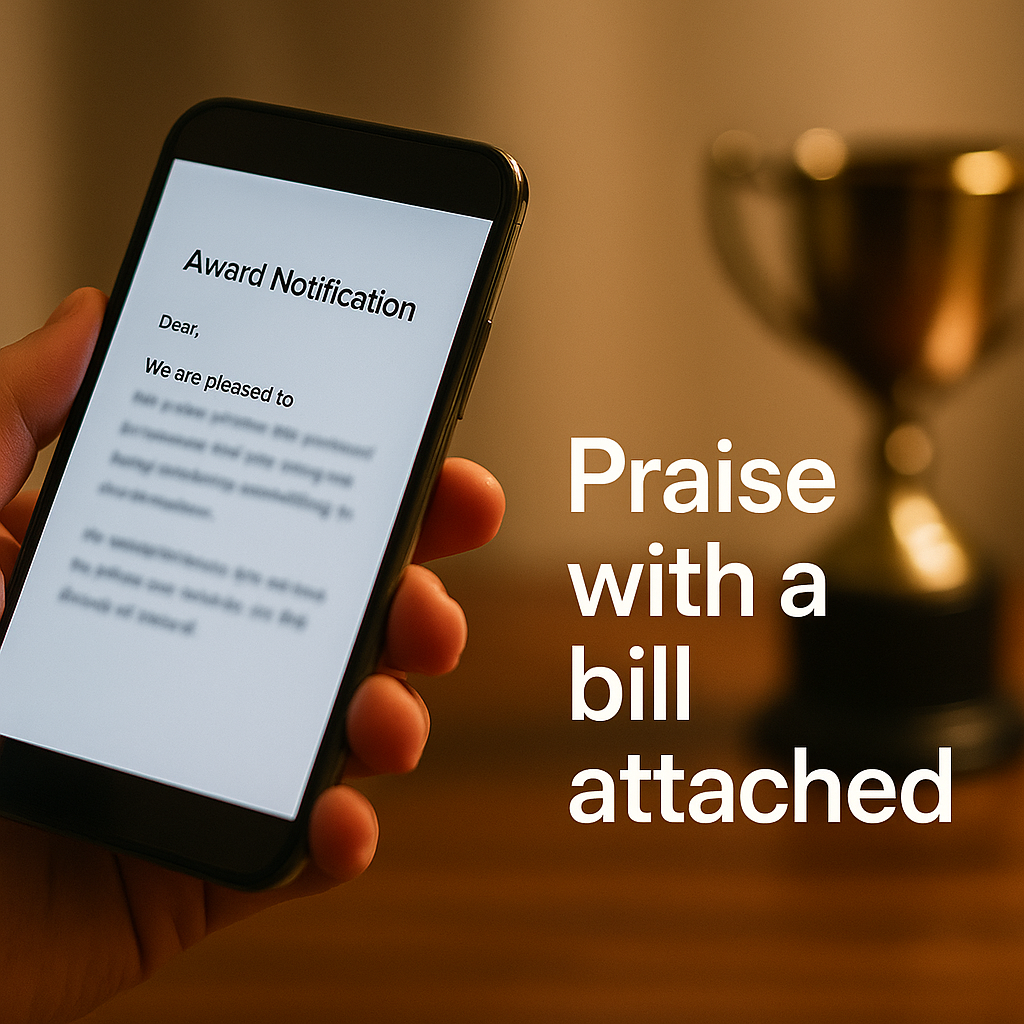
Let’s start with the seduction. IAOTP knows exactly what to say. The messages are flattering, somewhat personalized, and persuasive. They may reference your accomplishments, your career journey, or your public profile.
But here’s the catch: you never applied. You weren’t nominated. And you certainly weren’t vetted by a committee of industry peers.
You were selected. And soon after? You’re invited to accept the award formally—for a fee. That might include a press release, a profile in their glossy magazine, a ticket to their gala, or a video feature on a Times Square billboard.
If it sounds like marketing dressed up as merit, you’re not wrong. IAOTP operates in a space often referred to as the “vanity award” industry. These aren’t illegal scams. They’re structured businesses offering a sense of prestige in exchange for money. You pay, they praise.
Some people know exactly what they’re buying. Others don’t realize what they’ve walked into until it’s too late. Either way, it’s not free recognition. It’s recognition with a price tag and a fine print that quietly states: this is about you looking good, not necessarily being good.
If you didn’t earn it, and they didn’t vet it, what exactly are you celebrating?
Who’s Really Behind IAOTP?

Let’s pull back the curtain. The International Association of Top Professionals may sound like a massive, global coalition of elite decision-makers.
But in reality? It’s a tightly-run operation, founded and led by a small team—most notably, its President, Stephanie Cirami (and her husband Christopher Cirami.) The organization was founded in 2010 and is based in Hauppauge, New York.
Stepanie Cirami is, perhaps unsurprisingly, a self-described media, branding, and networking expert. The irony? Of course, she is. When your business model revolves around selling status, it helps to have someone at the helm who understands how to manufacture it.
She’s often the one delivering the “interviews” with prospective honorees, and her name appears repeatedly in prewritten award announcements. There’s no clearly published board of directors. No named selection committee. No third-party vetting.
Instead, IAOTP decisions appear to be made internally, based on subjective conversations and online research—if not outright templated outreach. One Reddit user described the group as a “husband-and-wife business” out of New York, selling praise for a fee. That may sound harsh, but it matches a pattern: there’s no transparency into who’s evaluating your qualifications or why they’re choosing you over anyone else.
Unlike industry-recognized awards that name judges and advisors, IAOTP keeps the gatekeepers hidden. This allows them to tailor each award to the recipient, creating a seamless (and flattering) fit. But when everything aligns too perfectly, it starts to look suspicious. Who’s picking the winners? The same people selling them the spotlight.
But to be very clear, this post isn’t about trashing IAOTP’s work. It’s a legally run enterprise, structured like a business—and businesses are allowed to market and sell what people are willing to buy. This article is here to educate. Vanity awards don’t just impact your wallet; they can quietly reshape how others perceive you. Especially in industries where reputation is your currency, what seems like a win on paper can cost more than the invoice suggests.
When the award is designed by the marketer, don’t expect objectivity.
Read carpet of Red Flags
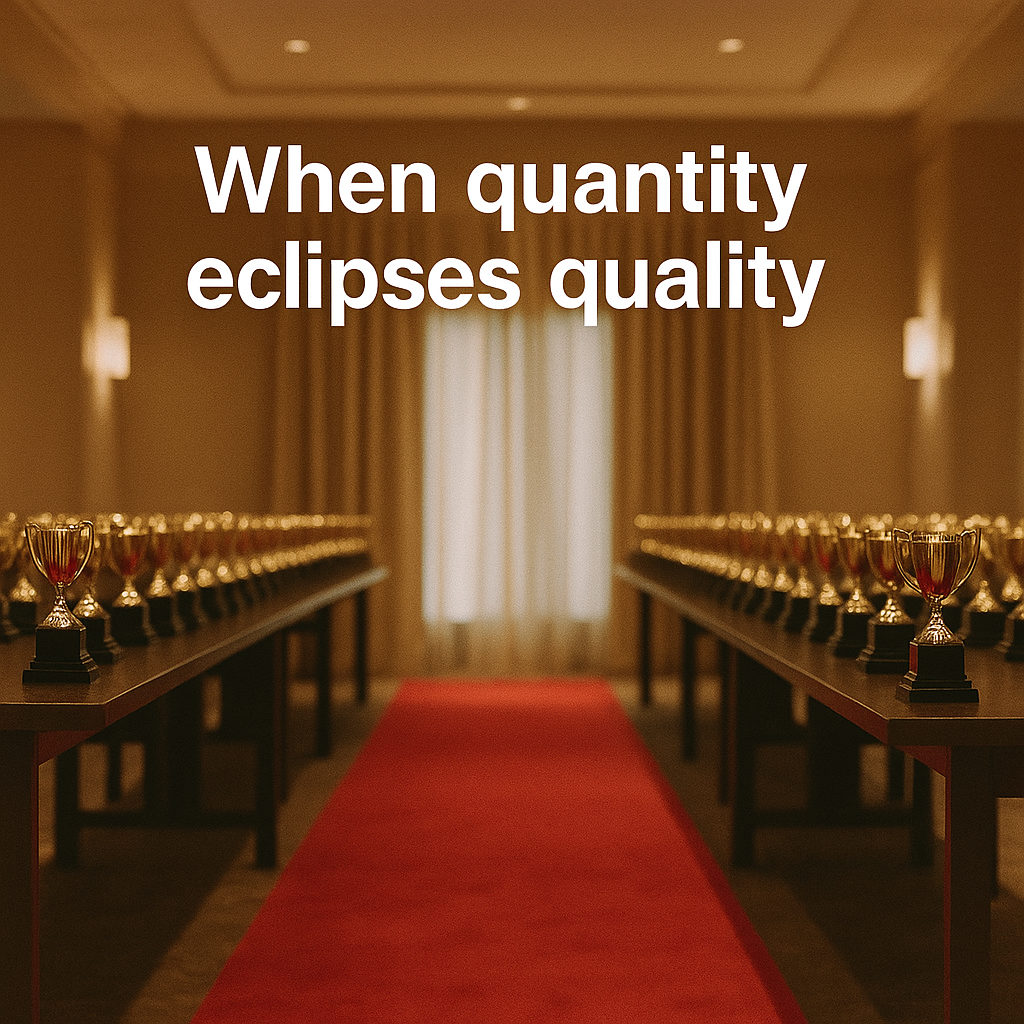
If a stranger handed you a trophy on the street and said, “You’re the best!” you’d laugh. If they followed it up with a $$$$ invoice for it, the laughter would stop. Yet that’s not too far off from how IAOTP’s model functions.
They offer awards with hyper-specific titles: Top Motivational Speaker of the Year, Top Dentist of the Decade, Empowered Woman of the Century. It’s an impressive-sounding buffet, but the menu changes based on the diner.
In some cases, they even tailor the award name to fit your bio. One recipient was surprised to see the award title align perfectly with a phrase from her website. Convenient? Or constructed?
And yes, you will pay. For the event. For the plaque. For the press release. For the exposure. For the illusion.
Type “Is IAOTP a scam” into Google and you won’t need to scroll far. Forums, Reddit threads, and watchdog blogs paint a consistent picture: a sophisticated vanity award operation.
There’s no shortage of personal testimonials, many of them starting with a hopeful tone and ending in buyer’s remorse. One Reddit user put it bluntly, “A website that looked like a 1990s Geocities creation from a PR and Marketing firm that’s obviously a vanity award scam that hands out awards that are paid for.”
Some recipients discovered the truth mid-gala, realizing they were one of 300 guests at the event (who all paid for their tickets). Yet 175 of whom were recipients. They showed up to what was, let’s be honest, a quite impressive award gala, yet found themselves surrounded by dozens of others equally declared “top” in their oddly specific lane.
What’s more, IAOTP doesn’t issue one consolidated press release like most established award organizations do. Instead, they generate an individual, templated press release for each honoree, making it easier to flood the internet with glowing mentions. It’s more volume than vetting, more quantity than quality. Meanwhile, prestigious industry awards typically issue one release that lists all winners transparently, along with judging criteria and selection methodology.
You see, reputation is like cologne. A little mystery is alluring. Too much, and people start to hold their breath. When awards are handed out in bulk, wrapped in compliments and invoices, the scent turns from classy to cloying.
Mass production and prestige rarely belong in the same sentence.
The Psychology of Being Chosen

Let’s not pretend this doesn’t work. Being chosen, even by a stranger, is somewhat intoxicating. There’s ego, pride, relief. Finally, someone noticed.
IAOTP taps into that human longing for affirmation, and they do it with skill. Their communications are mysterious, their events glamorous, their materials seductive. They know that for high-achievers, an accolade feels like validation; a moment to stop hustling and say, “yes, I did that.”
But let me tell you what no plaque or press release will tell you: the silent cost and how paying for such an award can quietly damage your credibility:
- It signals you’re more focused on optics than substance.
- It creates doubt about the legitimacy of your other accolades.
- It invites skepticism from hiring managers, potential clients, colleagues, and many more.
- It links your name to an organization widely discussed in scam and vanity award forums.
- It makes future recognitions—earned ones—feel questionable by association.
- It chips away at the personal brand you’ve spent years building.
- It can lead to uncomfortable questions from peers who recognize the pay-to-play model.
- It shows a willingness to be flattered into opening your wallet, not your worth.
Yes, organizations such as IAOTP offer a short-term boost. But long-term trust is built differently. It’s built with integrity, humility, and peers who recognize value without needing a transaction.
Want real recognition? Earn it through work that inspires unsolicited testimonials, awards from independent associations, or even simple word-of-mouth. That’s the kind of PR that doesn’t cost thousands; just a reputation built over time.
Being seen isn’t the same as being respected.
Real Awards vs. Pay-to-Praise: Know the Difference
So, how do you tell the difference between a legitimate award and a cleverly packaged vanity plaque? It’s not hard.
Real awards have a nomination or submission process. They have judging panels with recognizable experts. They often disclose how many applicants they received and what criteria were used. There’s transparency, and often, no cost to the winner.
Vanity awards arrive uninvited. They glow with superlatives. They ask for payment, usually buried under euphemisms like “membership dues” or “media packages.” And when you ask too many questions, the answers start to sound like rehearsed praise rather than evidence.
IAOTP, in particular, is known for this model. If everyone wins, no one really does. And when recognition is a commodity, it stops being recognition at all. But they’re not the only ones. A quick Google search will tell you a story of organizations that have mastered this vanity model, from so-called global quality councils to high-gloss directories promising instant prestige.
But they’re not the only ones. A quick Google search will tell you a story of organizations that have mastered this vanity model, from so-called global quality councils to high-gloss directories promising instant prestige. The patterns are eerily similar: grand titles, glowing language, and a gentle nudge toward your credit card. Just because an award looks impressive doesn’t mean it is.
1. American Biographical Institute (ABI)
- Founded in 1967 in Raleigh, NC, it issued “Man of the Year” and similar awards for fees between $195–$495.
- Frequently labeled a scam by governments and journalists, shut down in 2012 after persistent criticism.
2. International Biographical Centre (UK)
- Based in Cambridgeshire, England, associated with Melrose Press.
- Government consumer advocates warned about false impressions and implied phony credentials, used even in visa fraud.
3. Business Initiative Directions (BID)
- Founded in 1986 in Madrid, Spain.
- Offers awards like “International Quality Crown,” charging winners up to €10,000. The OCCRP called them “meaningless international awards”.
4. Europe Business Assembly (EBA)
- Oxford-based, founded in 2000.
- Journalists report: “If you paid for it, you got it.” Awards could cost €7,300–€11,000, and ceremonies held in prestigious venues like Oxford Town Hall.
5. Cambridge Who’s Who
- U.S. registry operating since the 1970s from New York.
- Requires membership fees, press releases, and “Executive of the Year” packages.
- Thousands of complaints led to unfavorable BBB rating and a $28,500 settlement with Oregon DOJ.
6. Local “Best Of” Business Awards Programs
- Town-specific “Best of [City]” awards that notify you by email, then charge $80–$200 for a plaque or trophy.
- BBB flagged these as vanity award scams, with many businesses unknowingly paying year after year.
7. and unfortunately, many more…
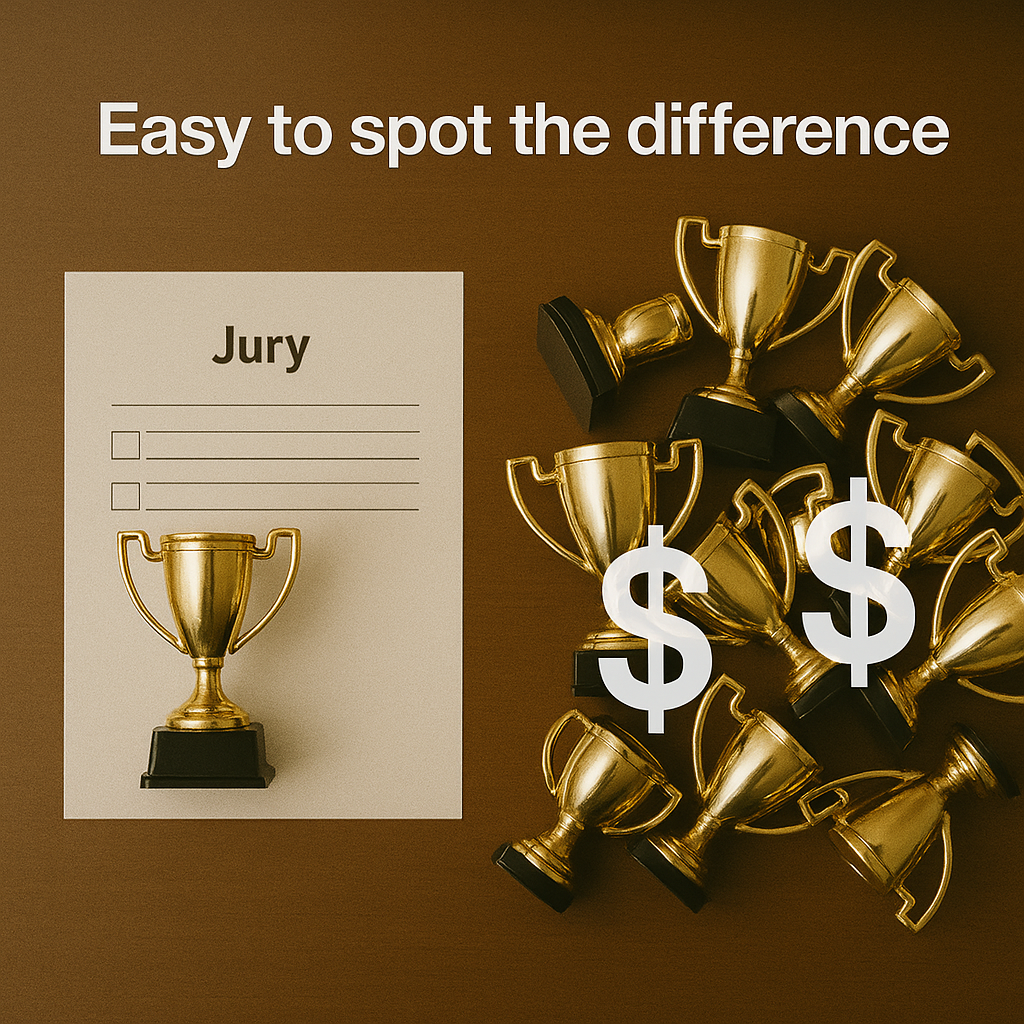
Yes, visibility matters. But how you get seen matters more. Skip the shortcuts and choose the long road: research, write, speak, serve, teach, innovate. Partner with associations and media outlets that vet their contributors. Nominate yourself (yes, really) for legitimate awards with clear criteria and zero invoice strings attached.
Need a place to start? Check out my blog post on 100 Industry and Business Awards Every Professional Should Know. (However, keep in mind that due diligence isn’t optional, it’s your responsibility. You still need to vet each of those listed as quite frankly I couldn’t “apply” to them myself.
True awards build trust. Vanity awards burn it.
Your Brand Deserves Better Than a Participation Trophy in Disguise

You’re not just a professional. You’re a brand. A story. A presence. Everything tied to your name either amplifies your credibility or chips away at it.
Recognition should feel like a mirror, not a costume. Something that reflects who you are, not just how you want to be seen. A vanity award doesn’t just lighten your wallet. It can quietly, silently, and powerfully erode your reputation.
Associating with IAOTP might get you a shiny trophy and a few LinkedIn likes. But it won’t earn you the kind of respect that fills conference rooms or moves audiences. That kind of respect is quieter, slower, and much harder to fake.
In the rooms that matter, people notice the difference between earned respect and purchased applause. Choose carefully which praise you accept. Because the wrong award says more about you than no award at all.
So, ask yourself this: if your audience knew you paid to be called “Top Leader of the Year,” would they still trust your message? Or would they wonder what else has been bought?
